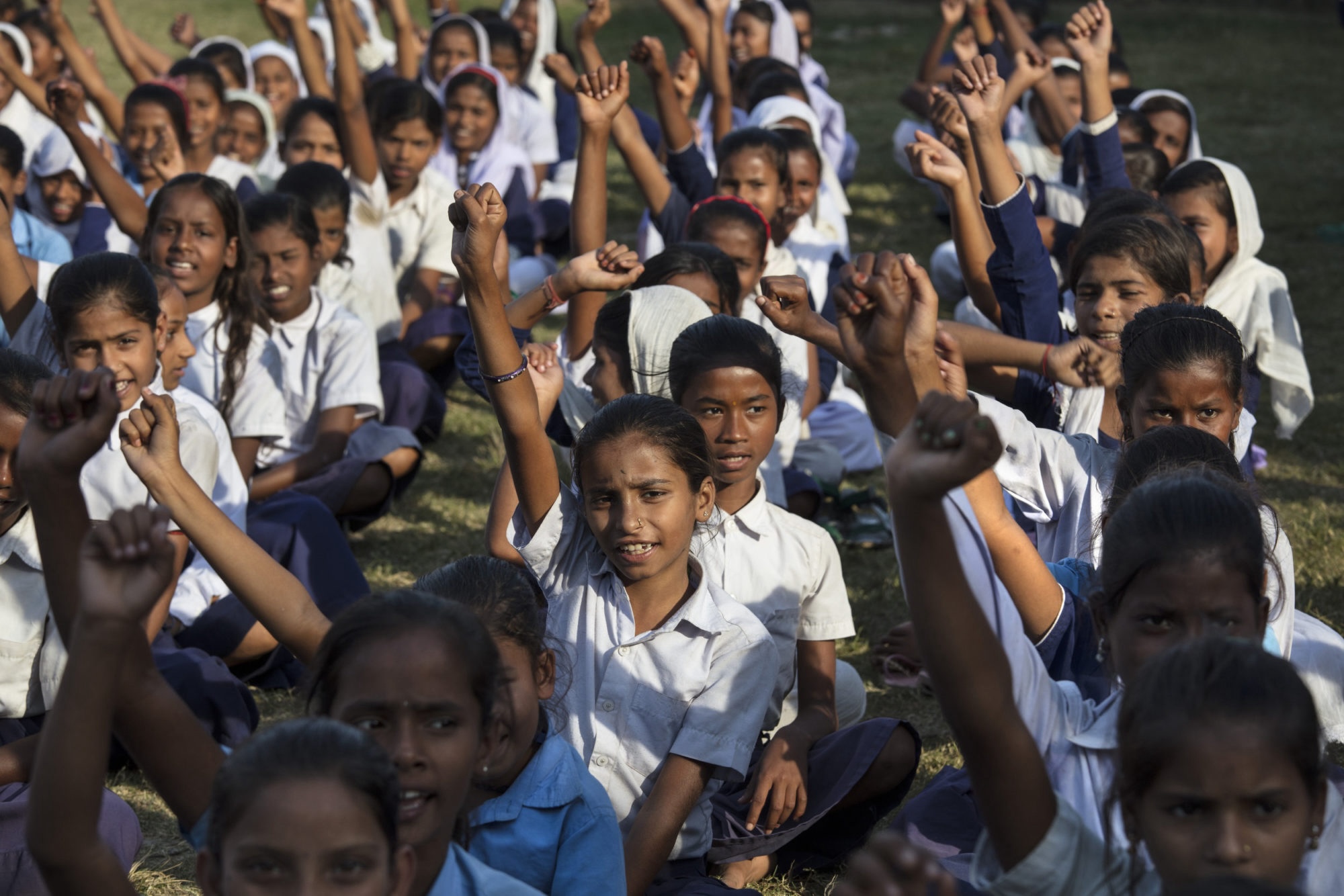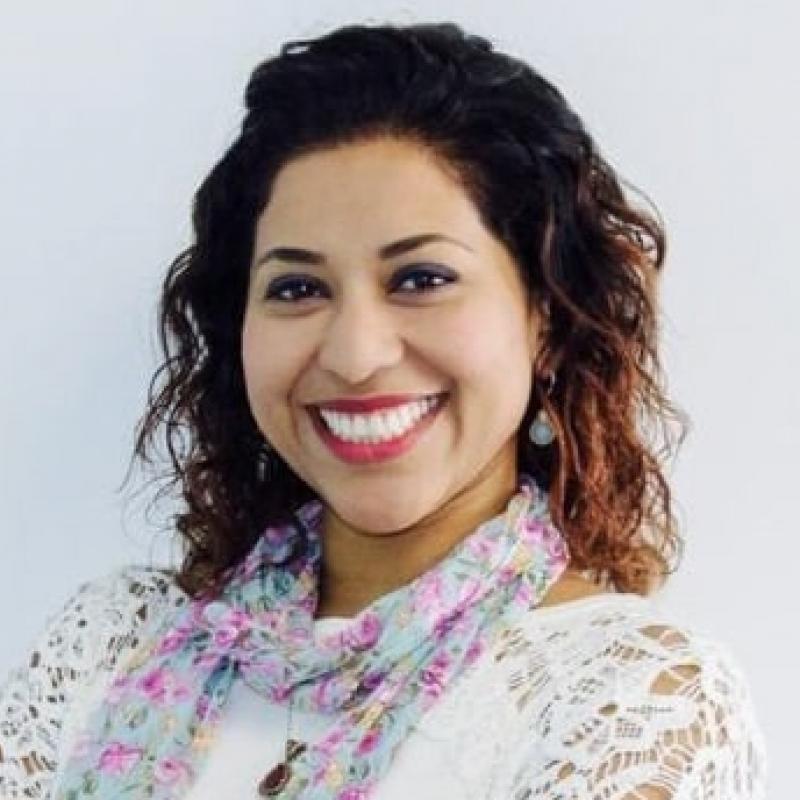Bridging the gender gap can drive development in the Global South
Margarita Gómez, Master of Public Policy alumna and current Visiting Fellow with the Lemann Foundation Programme is the Executive Director of Southern Voice, a network of think tanks from the Global South aiming to strengthen the economic and leadership opportunities of women and girls. Along with her colleague Valeria Colunga, Executive Strategy Officer at Southern Voice, they explore the gender equality gap in 2025, from the care economy to the digital divide.

Gender equity and women’s leadership are fundamental to the progress and resilience of the Global South.
Women are the backbone of economies, contributing nearly 37% of GDP in low- and middle-income countries. Yet, gender disparities persist: women earn 20% less than men on average and perform 76% of unpaid care work.
Inequality also permeates political representation, with women holding only 26% of parliamentary seats in Africa, 23% in Asia, and around 35% in Latin America and the Caribbean. Investing in gender equity is one of the clearest pathways to unlocking the full potential of economies, fostering innovation, building inclusive institutions, and setting the world towards true sustainable development.
Our work with Southern Voice recognises the need to strengthen women’s and girls’ economic and leadership opportunities in the Global South. We underline the importance of increasing evidence-informed gender research and disaggregated data. This is particularly relevant as, according to UN Women, none of the SDG 5 (Gender Equality) indicators has been met. The persistent evidence-to-policy gap keeps policymakers from accessing, understanding, and effectively utilising gender-related research. To help close this gap, Southern Voice has focused on three key areas in the gender agenda for the Global South: the care economy, the digital divide, and women’s leadership.
A southern perspective on the care economy agenda
The care economy, in which workers are predominantly women, is a critical part of the Global South’s agenda for gender equality. We are calling for the mobilisation of resources towards gender-transformative, comprehensive care systems and for positioning the topic in broader conversations. With the right policies, investing in the care economy could increase women’s participation in the labor force by creating almost 300 million jobs by 2035. As part of our policy work, we have been working to raise awareness of the need for a new social contract for the care economy and to ensure that the process to develop a Global Roadmap for Action on the Care Economy (GRAC) reflects a Global South perspective.
Addressing the gender digital divide
Bridging the digital divide is an important priority in many Global South countries, where women and girls are particularly being left behind. In the world’s least developed countries, the gender digital divide in internet access is the largest at 32.9%, and in low and middle-income countries 1.7 billion women do not own mobile phones. This gap in access exists while 90% of jobs around the world require a digital component. Without the means to participate in today’s digital society, women and girls are unable to gain the skills required for digital work tools. According to Intel, annual GDP across 144 developing countries could rise between US $13 and US $18 billion if 600 million more women were connected to the internet.
Our Ed-tech project highlights the gender digital divide as a critical issue, stressing the need for contextualised policies based on gender-disaggregated data. We have advocated for its inclusion in the Summit of the Future and Global Digital Compact, providing evidence and recommendations to address barriers preventing women and girls in the Global South from full digital participation. Two of our members are researching ways to increase women’s engagement in STEM (Science, Technology, Engineering, and Mathematics) and entrepreneurship—CIPS (Indonesia) is studying how curriculum adjustments motivate female students in STEM, while IPAR (Senegal) focuses on empowering women’s entrepreneurship.
Boosting women’s leadership in decision-making spaces
As of last year, 107 countries had never had a women Head of State and only 27% of the seats in national parliaments were held by women. According to UN Women, gender equality in the highest roles of power will take around 130 years to be achieved at the current rate. Empowered women leaders ignite change and pave the way for a more inclusive, innovative future. Women political leaders have demonstrated the ability to work across party lines and navigate complex political environments. Their leadership in decision-making spaces is essential across all sectors, from public and private institutions to international and multilateral organisations, mainly under the current global context.
International institutions have made progress towards gender equality, but substantial parity—especially in leadership—remains a work in progress. According to GWL Voices, among 54 multilateral organizations, only 15 have only had one female leader and 21 have never had a woman in charge. To support women’s leadership in multilateral organisations, Southern Voice has joined the 1 for 8 Billion global campaign to advocate for a fair and transparent selection process for the next United Nations Secretary-General, calling for the appointment of the first woman to lead the institution.
The gender equality agenda for 2025
As we reflect on the accomplishments and challenges of the battle towards gender equality, we encourage you to join forces, mobilise resources, and collaborate to reduce the gender gap and empower women worldwide. To achieve this, the integration of Southern leadership, perspectives, and research is fundamental, especially in our current geopolitical and economic context.
Gender inequality comes at a cost for everyone: by not investing in women and girls, we are missing out on $10 trillion every year. In a world of increasing multipolarity and reduced funding for development, we will continue to stand up for gender equality and evidence-based policymaking. From funding Southern-led gender research to supporting the election of women leaders, we remain committed to asserting gender equality across all our work. During these times of change, it’s vital that we smash the glass ceiling with better gender-related research and policy.
This blog was originally published in https://southernvoice.org/bridging-the-gender-gap-in-the-global-south/

